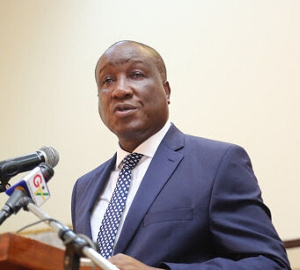Supreme Court judge raises eyebrows over abuse of court processes in corruption related cases

Justice Nene Amegatcher, a Supreme Court Judge, has lamented over growing trends of lawyers and accused persons abusing court processes in corruption related cases in the country.
According to the Justice of the Supreme Court, “I have seen a trend in this country. The court process is used to frustrate the prosecution of corruption related cases. People raise objections and the Court rules against them, then they go for appeal. I don’t think it is good for this country.”
The Justice of the Supreme Court noted that in Nigeria, “You are given three months to complete cases, no adjournments, no interlocutory injunctions.”
The Justice said this when a panel of five judges presided over by Justice Victor Jones Dotse, dismissed special leave application for appeal filed by William Ato Essien, a former Chief Executive officer of the defunct Capital Bank.
Essien is praying the Court to grant him special leave to enable him to file an appeal against the Court of Appeal decision that upheld the High Court ruling.
The High Court presided over by Justice Eric Kyei Baffour, a Court of Appeal judge sitting with additional responsibility as a High Court judge, in its ruling, admitted into evidence four unsigned documents tendered by Fitzgerald Odonkor, a third accused person, in the GH¢620 million bank trial at the High Court.
Essien had gone to the Supreme Court to seek “special leave of the Court to appeal against the decision of the Court of Appeal against the admission of unsigned Board Minutes admitted in evidence at the High Court.
He was also seeking leave of the Supreme Court to also stay proceedings, pending the determination of the application for special leave.
Following the dismissal of special leave application, Essien’s lawyer therefore withdrew the application for stay of proceedings before the Supreme Court.
The five-member panel held that there were three grounds for which applicants could apply for special leave.
According to the apex court, Essien’s did not met the three grounds for the application of special leave.
Source: GNA
